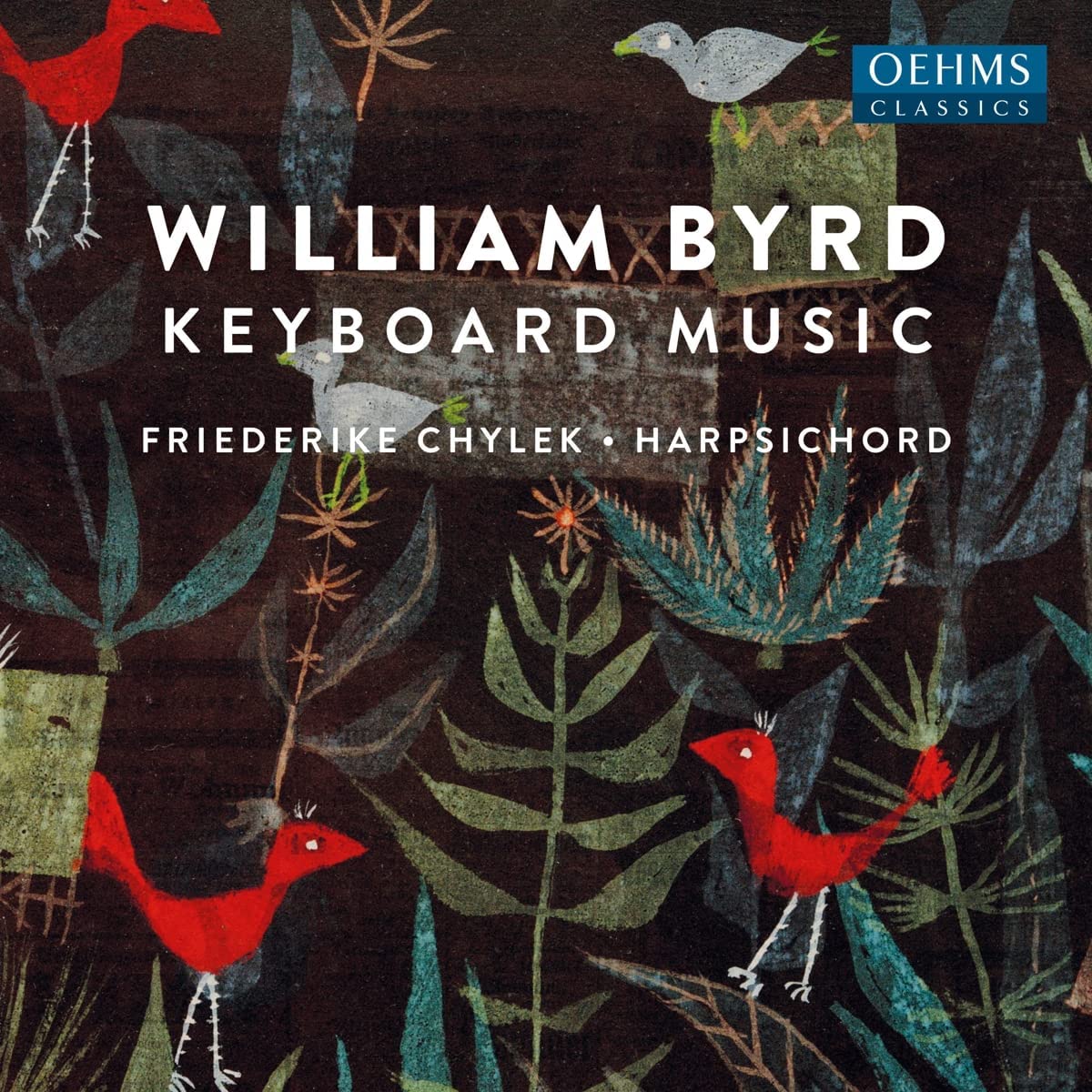Friederike Chylek harpsichord
57:02
Oehms Classics OC 1724
Click HERE to buy this recording on amazon.co.uk
[These sponsored links help keep the site alive – and FREE!]
While listening to this excellent disc, it occurred to me that Friederike Chylek would be the ideal harpsichordist to make another recording of Byrd’s complete keyboard music, a successor and alternative to Davitt Moroney’s boxed set from 1999 (Hyperion CDS 44461-7, reissued 2010). The baker’s dozen of pieces selected here are varied in genre and structure, and in technical and interpretive demands. By now most of these pieces have achieved more than one recording, but it is good to hear less familiar items such as The Irish march, extracted from its home in The battle, and the will o’ the wisp Wilson’s wild amongst the mighty Second ground and the pioneering virtuoso Prelude and Fantasia. One of the finest of the great Nevell pavan and galliard pairs, the Fifth, appears in company with two of Byrd’s most familiar song variations, Sellinger’s round and The carman’s whistle. The programme is completed by two almans – BK 89 (T 437) and The queen’s alman – and is topped and tailed by The Earl of Oxford’s march, and Tregian’s ground aka Hugh Ashton’s ground. The use here of the former title indicates that Ms Chylek is playing the version in the Fitzwilliam Virginal Book (FVB), which was compiled by Francis Tregian, and not the version in My Lady Nevell’s Book which uses the alternative title; she also defers to the FVB version of the Prelude and Fantasia rather than that left in another manuscript by Byrd’s pupil Thomas Tomkins.
Ms Chylek has made two previous recordings which feature Byrd’s music to a greater or lesser extent: Time stands still (OC 1864 – my review posted in EMR 7 February 2017) and From Byrd to Byrd (OC 1702). I reviewed both of them favourably, noting that she has a unique feel for the English virginalists in general, and for Byrd in particular.
Among discs devoted to Byrd’s keyboard music, this current recording is among the very finest. Her interpretations are penetrating but not quirky, profound but not distracting. This transcendence is best illustrated in Tregian’s ground which, at 8’30, is one of Byrd’s longest keyboard works. The triple time of Byrd’s chosen ground is sustained unassertively but irresistibly while Byrd’s remarkable ruminations continue above and around it. There have been several recordings of this magnificent piece, and a number of performers treat it as a virtuoso work to display their techniques. This works perfectly well, and the music can withstand it. Ms Chylek takes a more contemplative, less frenetic view, so that every aspect of Byrd’s counterpoint and harmony is clearly audible, while the passion of Byrd’s creation still shines through. Her interpretation – and this is the case with every track – is seemingly not so much aimed at exhibiting her own formidable technique, but rather, is placed at the service of the composer and what Byrd himself seeks to express through his music. This is no criticism of other more flamboyant performances, but it is the key to what gives this recording its unique character, which in turn elevates it to such a high level of achievement. She uses a modern copy of a Ruckers from 1624, and her playing on it provides ideal listening: stimulating to the intellect, and delightful for recreation.
Richard Turbet
